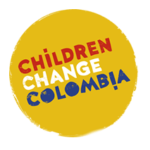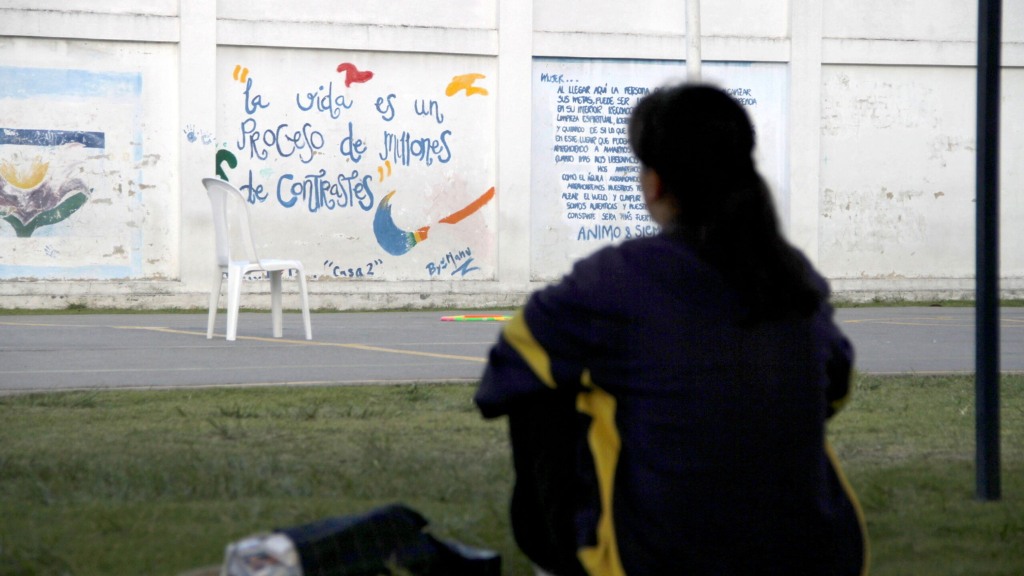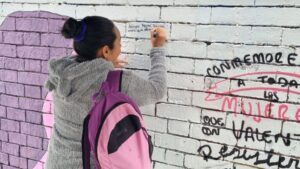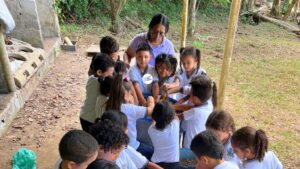When Cecilia first escaped the guerilla, she thought her suffering was over. Instead, she found herself in an overcrowded institution where strict rules and isolation made her feel trapped once again. Forbidden from looking outside, waking up at 3 a.m. to clean, and surrounded by over 100 other girls, she felt invisible. It wasn’t until she was transferred to Bogotá to live with a foster family that she began to rebuild her life. Through care, education, and support, she found confidence, a sense of belonging, and hope for the future.
Cecilia is one of the 60 adolescents of the programme that Children Change Colombia-CCC and Centro para a reintegración del niño-CRAN have in Bogotá and Villavicencio to support children’s victims of forced recruitment.
In Colombia, children and young people continue to face the grave threats of forced recruitment and sexual exploitation, issues deeply rooted in the country’s armed conflict. However, Children Change Colombia (CCC) are making significant strides to combat these injustices. Through our project “Football for Peace”, we are preventing the recruitment of young people in Chocó and Nariño, and also are working against sexual exploitation and gender based violence in Bogotá, Barranquilla, Cartagen and Santa Marta. Through workshops, life-planning initiatives, and creative therapies, participants gained vital skills to protect themselves, strengthen community resilience, and advocate against gender-based violence.
Progress has also been made at a national level, with the Special Jurisdiction for Peace (JEP) and the Missing Persons Search Unit (UBPD) prioritising actions to address these issues [1]. Yet, despite the peace accord being signed 8 years ago, in the Western Cauca region, peace barely lasted, and it is estimated that there were 16 armed groups in the area at one point [2].
This article highlights the critical work being done to protect Colombia’s children, while shedding light on the ongoing challenges they face. Ending these abuses requires sustained efforts from communities, organisations, and institutions alike to create lasting change and ensure that no child is left behind.
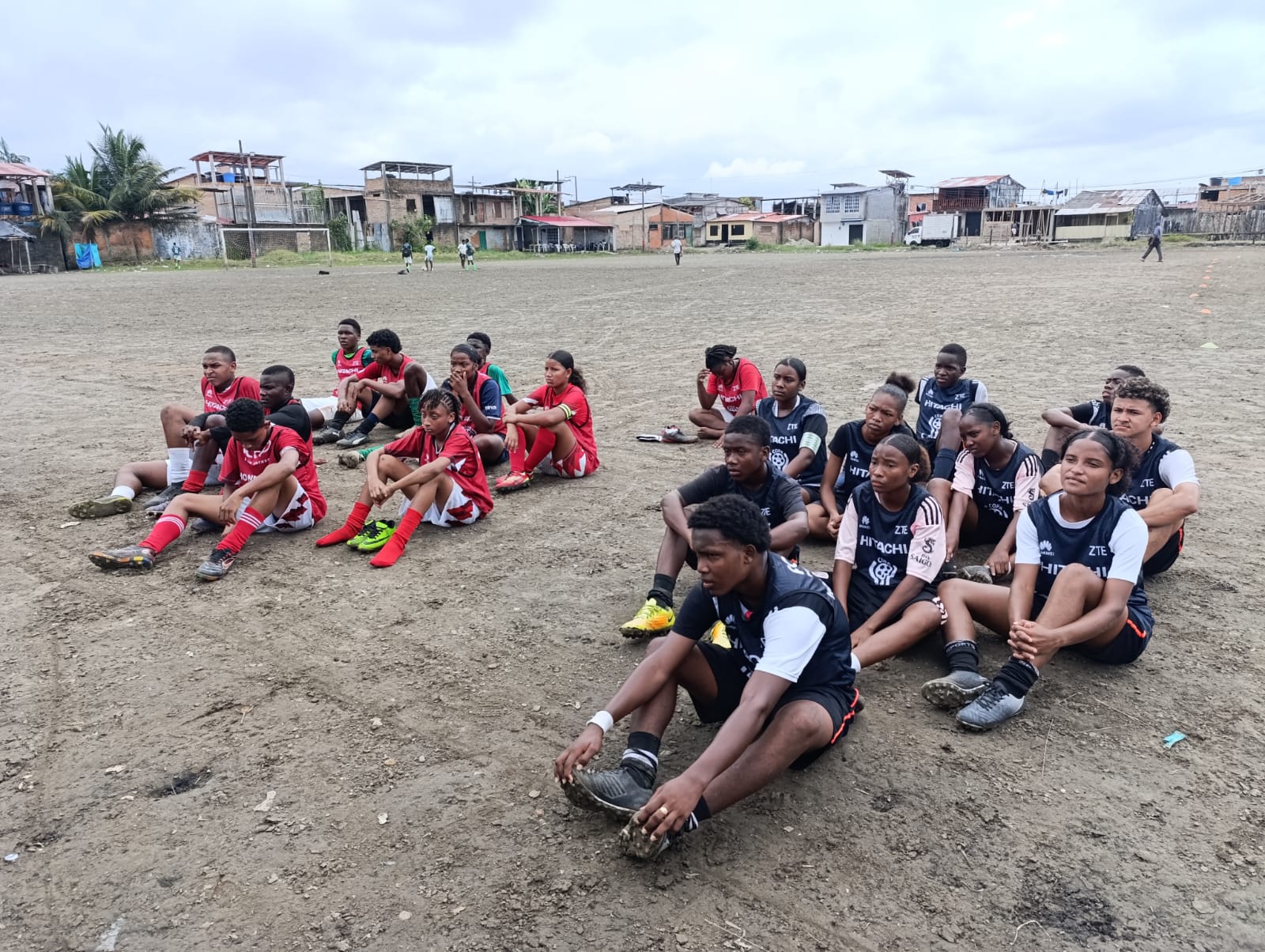
Prevalence of Forced Recruitment
The use of children by armed groups like the ELN or FARC remains a grave issue in Colombia. Vulnerable communities are often targeted through coercion, manipulation, and exploitation. Despite the 2016 peace accord, forced recruitment persists, with over 200 children reported missing due to recruitment in 2024 alone. According to the Guardian [2], over the last 4 years, more than 850 children have been taken in order to fight, with hundreds still missing.
To address this, Children Change Colombia’s Football for Peace project uses sports as a transformative tool to protect children from recruitment and violence. Originally launched in 2023 in Chocó, the project was relocated to Nariño following a humanitarian crisis in the original region, where conflict and severe flooding displaced over 180,000 people. While providing emergency relief in Chocó, CCC adapted the project to Tumaco, another Pacific coast region facing similar challenges of armed conflict and inequality.
Running from December 2024 to December 2025, the initiative directly involves 60 girls and benefits their families and communities in the city of Tumaco. By combining psychosocial support, sports training, and peacebuilding education, the project empowers young women, addresses gender-based violence, and promotes equality. Football becomes a catalyst for resilience and leadership, equipping girls to thrive and drive change in their communities, even amid adversity.
Sexual Exploitation in the Conflict
In Colombia’s armed conflict, children face dual vulnerabilities as both combatants and victims of sexual exploitation. Girls are particularly at risk of sexual violence, often forced into relationships with commanders, subjected to abuse, or used as “war trophies” [3]. Many are also forced into pregnancy or undergo dangerous abortions. Boys, while also at risk of sexual abuse, are more commonly recruited as foot soldiers, subjected ot brutal training, and coerced into commiting acts of violence [4]. The trauma of these experiences affects survivors’ mental health, relationships, and sense of security long after they escape.
Children Change Colombia’s latest initiative, launched in 2024, aims to combat sexual and gender-based violence in Bogotá, Barranquilla, Santa Marta, and Cartagena. This three-year project seeks to empower 1,310 children and young people each year, equipping them with socio-emotional skills, self-protection mechanisms, and access to counselling and workshops. By fostering artistic youth groups, the initiative provides safe spaces for creativity, healing, and advocacy. Cecilia’s journey is a testament to the impact of such support. After escaping the guerrilla, she struggled with anger and distrust, but through the care of her foster family, she regained her confidence and built a new future. Now, she is pursuing her dream of working in hospitality, something that once felt impossible. Just as Ceceilia found hope and stability, this new project aims to give vulnerable children the same chance to heal, grow, and reclaim their futures.
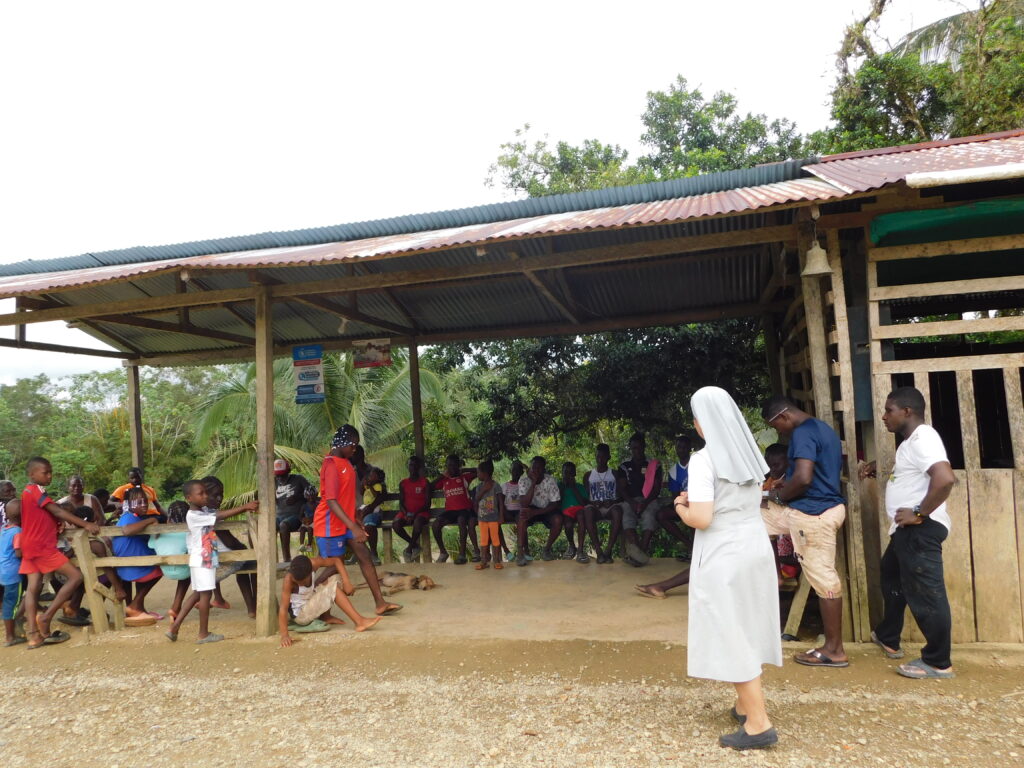
Challenges Ahead
Despite progress, significant challenges remain in the fight against forced recruitment and sexual exploitation in Colombia. Armed groups continue to exploit vulnerable communities, often using coercion and manipulation to conceal their actions, making it difficult to identify and address hidden cases. Many survivors face barriers in seeking help due to fear, stigma, or limited access to support services, leaving countless instances of abuse unreported.
Ensuring accountability for perpetrators is another critical hurdle. The justice system often struggles to provide timely and effective responses, leading to a lack of trust in state institutions [5]. For affected communities, this distrust is deeply rooted in years of neglect and unmet promises, further complicating efforts to establish protective measures. Without reliable systems to hold offenders accountable, the cycle of exploitation risks perpetuating itself.
To overcome these challenges, a multifaceted approach is essential. Strengthening community trust through locally driven initiatives, improving access to justice, and ensuring robust support networks for survivors are vital steps. Organisations like Children Change Colombia play a crucial role in bridging gaps by working directly with communities and partnering with local grassroots organisations. Through these collaborations, we foster trust, provide essential resources, and empower children and their families with the skills and support they need to build safer futures. However, sustained efforts from all sectors of society are needed to address these complex issues and ensure lasting change for Colombia’s most vulnerable children.
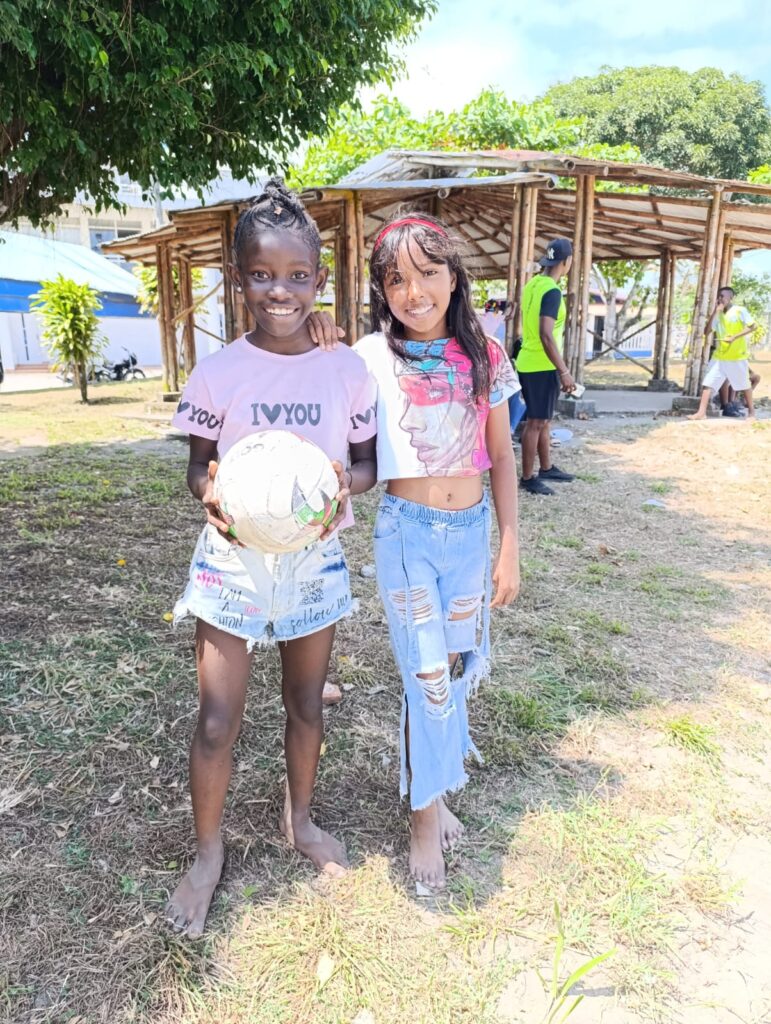
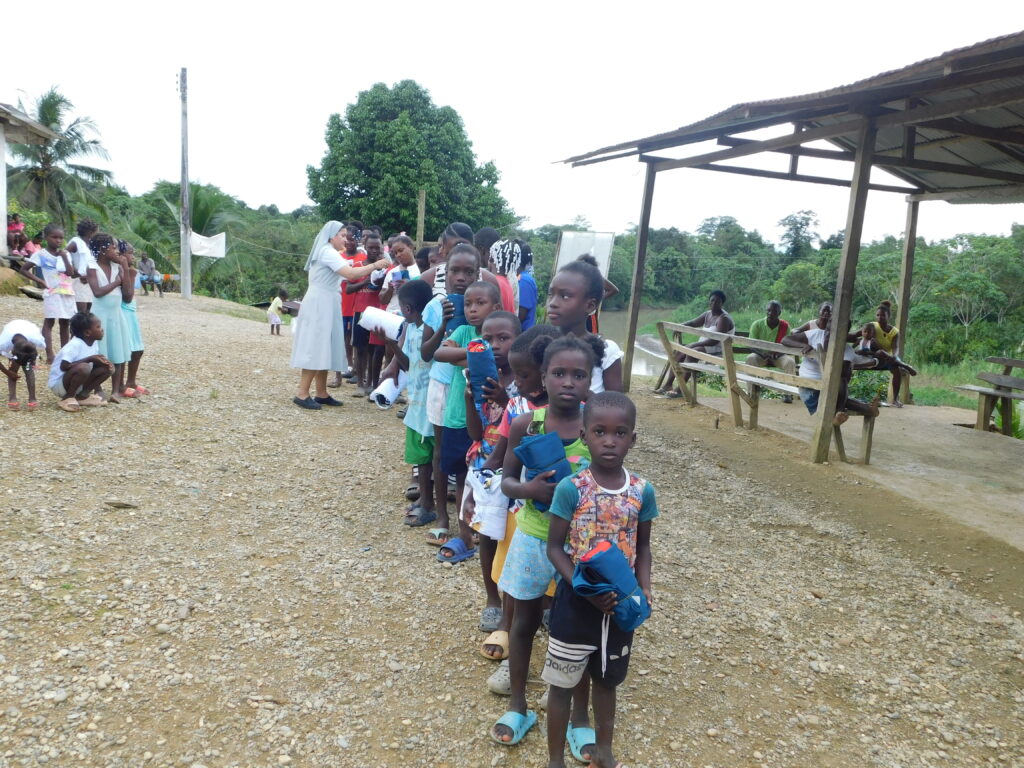
Written by: Harnisha Uppal (Fundraising Intern with CCC)
Citations
1 https://www.jep.gov.co/macrocasos/caso07.html
3. https://www.bbc.co.uk/news/world-latin-america-14988443
5. https://bti-project.org/en/reports/country-report/COL?utm_source=chatgpt.com
This blog post is a guest contribution. The views, thoughts, and opinions expressed in this article are those of the author and do not necessarily reflect the official position or policies of Children Change Colombia.
